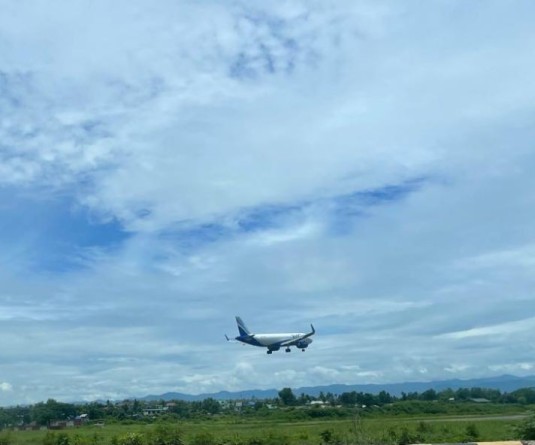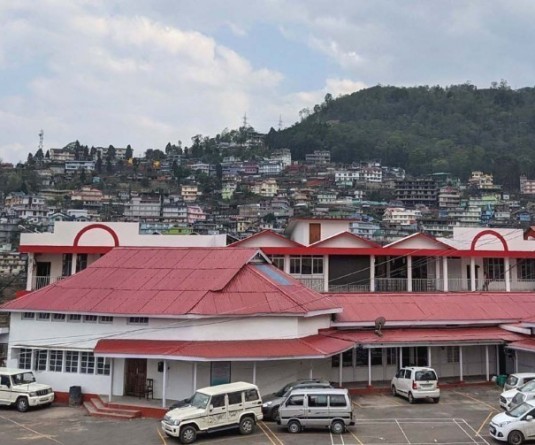Speakers and dignitaries during the 31st General Conference of the NSF in Tseminyu on August 29.
Morung Express News
Tseminyu | August 29
The 31st General Conference of the Naga Students' Federation (NSF) was held on August 29 at Tseminyu Town. The theme session featured S Toiho Yeptho, Deputy Speaker of the Nagaland Legislative Assembly, as the special guest, while Dr Aküm Longchari served as the theme speaker. The event was chaired by Reverend Mhathung Lotha, Missionary-at-Large of the Kohima Lotha Baptist Church.
During the session, Senchumo NSN Lotha, Chairman (ILRC), delivered a sensitisation talk on the Bengal Eastern Frontier Regulation of 1873, commonly referred to in public discourse as the Inner Line Pass or ILP. He stressed the critical role of the ILP in protecting the rights, identity, and economy of the indigenous Naga people.
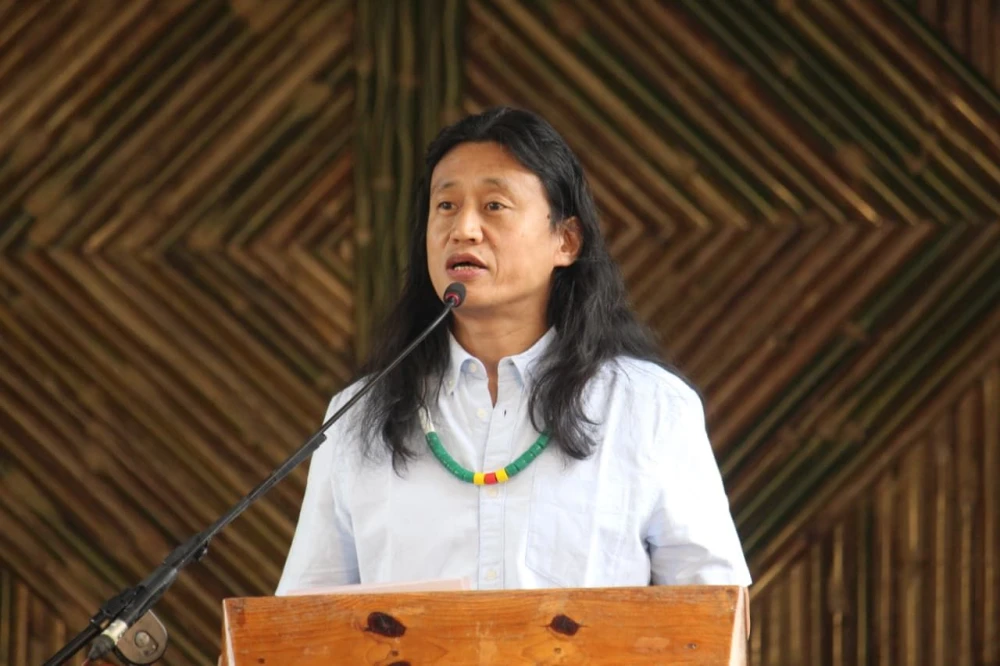
Lotha pointed out that what was once known as the Inner Line Pass has been widely and incorrectly referred to as a permit. He warned that this misinterpretation has led to misuse by ‘outsiders,’ resulting in a situation where a majority of businesses in Nagalandm, approximately 97 percent are now owned and operated by ‘non-locals.’ He called on Nagas to read, understand their rights, and reclaim control over their own land and economy.
He said that the regulation was meant to protect Naga identity and that the British, during colonial rule, had recognised the need to safeguard the Nagas from exploitation by plainsmen. While Mizoram has preserved the ILP system effectively, Nagaland has failed to enforce it in the same way, leading to a steady erosion of indigenous ownership and control.
The Bengal Eastern Frontier Regulation of 1873 was enacted to regulate the entry of outsiders into tribal territories. It drew an inner line across which no outsider could pass without official permission. The term "Inner Line" was suggested by Arthur Hobhouse to describe this boundary. Initially enforced by the British to protect both their interests and the native communities, it restricted economic activity, land ownership, and entry into Naga territory without a pass.
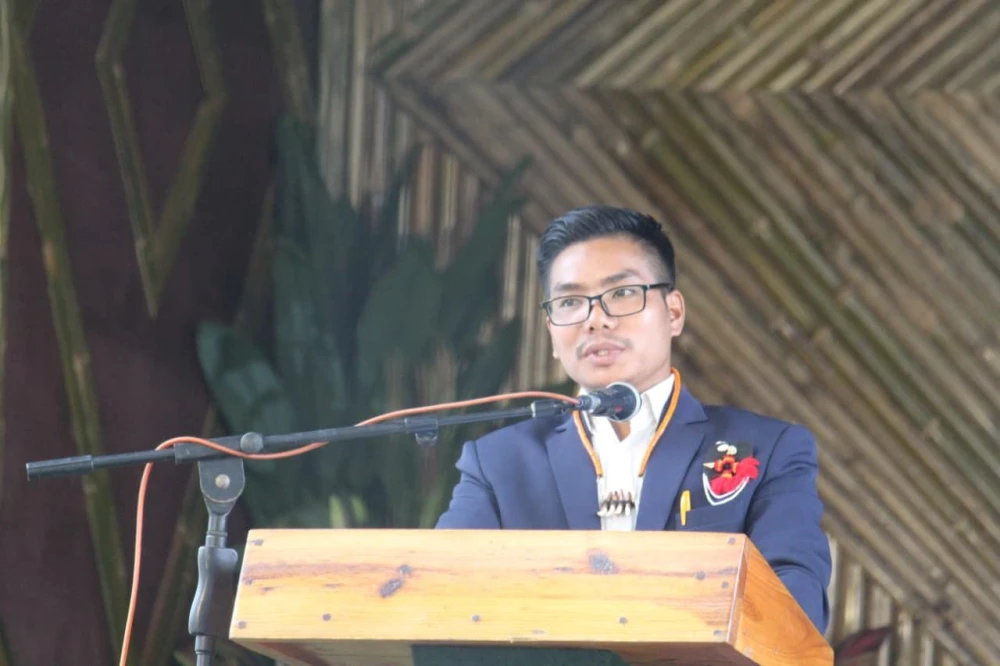
After Nagaland attained statehood in 1963, the responsibility of enforcing the ILP fell on the state government. However, according to Lotha, enforcement has been weak, and despite multiple committees offering detailed recommendations, the system remains poorly implemented. He also referred to the 2024 notification that extended ILP enforcement to Dimapur and its subdivisions, which has since caused confusion and led to demands for exemptions by various communities.
He stated that while the ILP is not meant to harass any Indian citizen, it is a legal tool to monitor and control migration into the state. He clarified that there is no provision in the original regulation for renewal of ILPs. Renewal, which is now commonly practiced, undermines the purpose of the regulation and must be reconsidered.
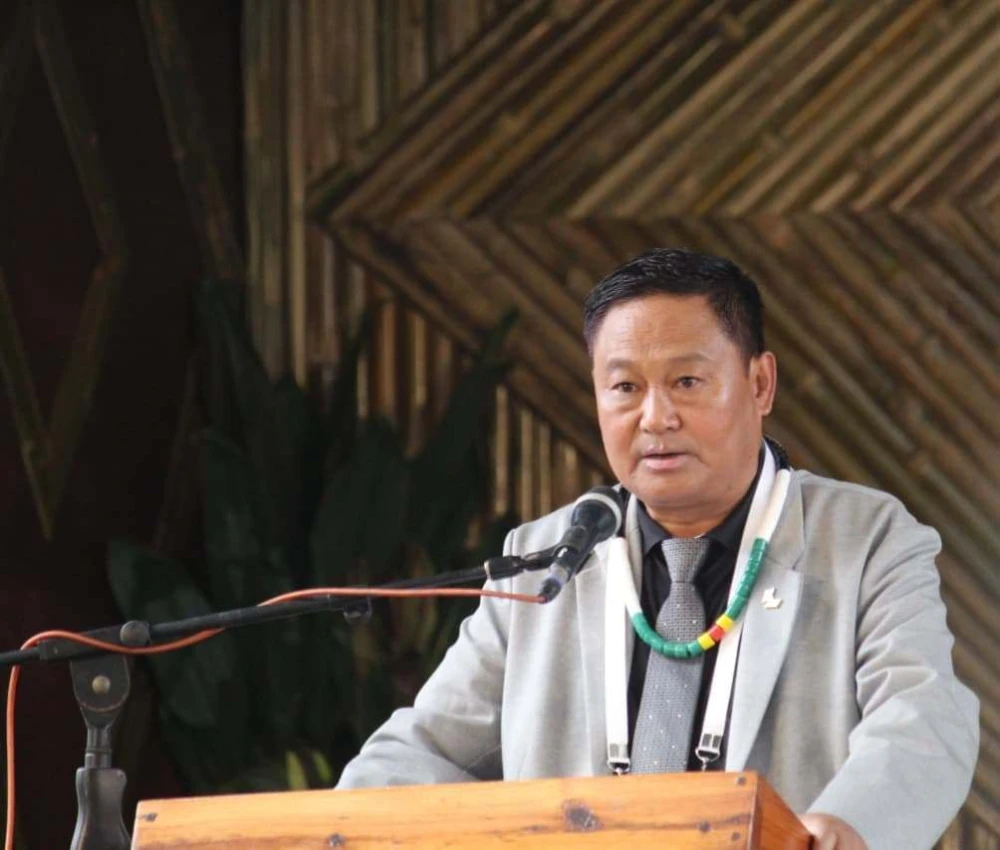
Senchumo Lotha concluded that the ILP must be seen as a protective measure for preserving Naga culture, economy, and social identity. The newly formed Inner Line Regulation Commission under NSF has been tasked with overseeing its proper implementation.
President of the Naga Students’ Organization, Myanmar, also addressed the gathering, sharing the hardships faced by Nagas living under the Myanmar military regime. He said that Nagas in Myanmar are not recognised among the country's 152 ethnic groups and have been systematically excluded. He detailed how many schools have been shut down due to lack of teachers, and how Naga youth are being kidnapped, arrested, and forced into armed conflict by the junta government. He called for unity and mutual support among all Nagas, urging them to think beyond state and national borders.
A solidarity message was also delivered by the programme Chairperson of the Movement for Indigenous Peoples from the Philippines, who stressed the need for indigenous communities to unite globally to address common struggles.
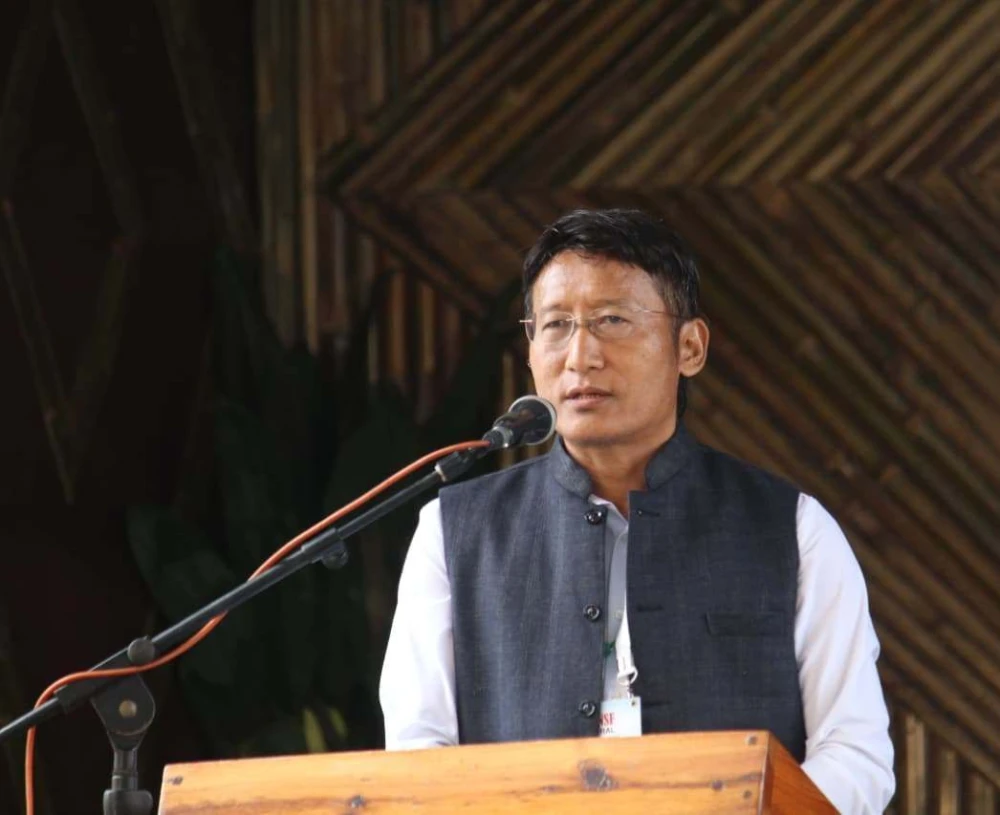
Deputy Speaker S Toiho Yeptho, in his address, described the NSF not just as a student organisation, but as a platform representing all Naga communities. He reflected on the divisions among Nagas, stating that blaming external agencies or the Indian government is not productive. He urged the community to take responsibility, practice humility, and work towards unity. He emphasised that Naga political issues are complex and should not be ignored or left to a few individuals to resolve.
He also called on Naga youth to strive for excellence and relevance in modern society. He encouraged them to go beyond routine life and aim for meaningful contributions in fields such as education, technology, and social service, especially in light of global shifts such as the rise of artificial intelligence.


